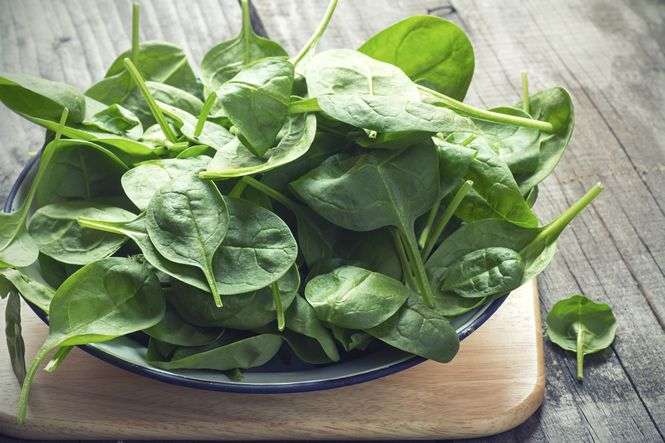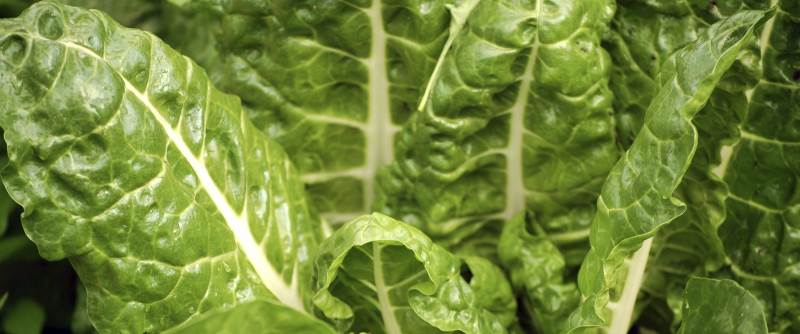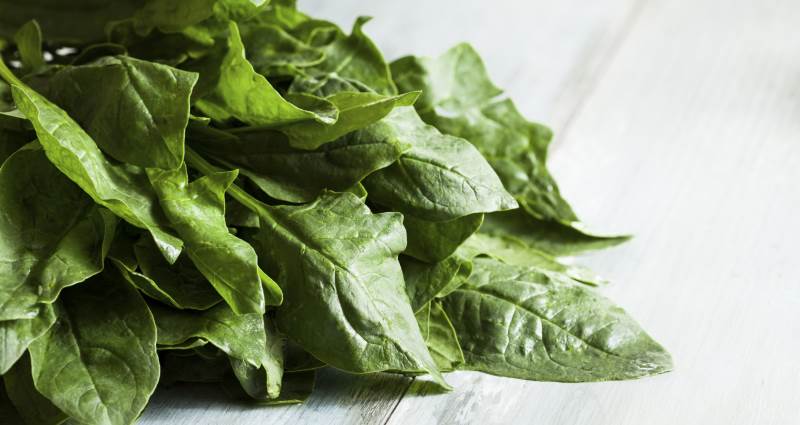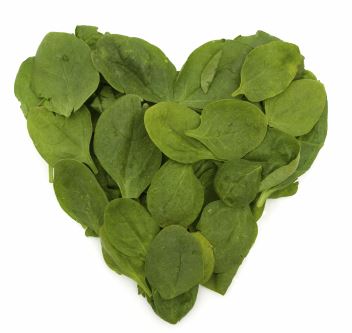An Introduction to Spinach
Spinach belongs to the Amaranthaceae family, along with beetroot and Swiss chard. In fact, the leaves of all three plants share a similar taste profile. It is an annual plant that grows to about 30cm. Though in season in spring, spinach can survive over winter in a relatively temperate climate.
 Dishes made with spinach are often called ‘Florentine’ dating back to 1533, when the queen of France at the time, who was born in Florence, insisted that spinach was served in every meal.
Dishes made with spinach are often called ‘Florentine’ dating back to 1533, when the queen of France at the time, who was born in Florence, insisted that spinach was served in every meal.
Varieties of Spinach
 Though many types of spinach exist, these can largely be split into three main varieties: Savoy spinach, Flat-leafed spinach and Semi-savoy spinach. Savoy spinach has dark green, curly leaves. The plants are very productive and can survive cold weather better than other types of spinach. As it grows close to the ground, cleaning the leaves before use can be somewhat of a chore.
Though many types of spinach exist, these can largely be split into three main varieties: Savoy spinach, Flat-leafed spinach and Semi-savoy spinach. Savoy spinach has dark green, curly leaves. The plants are very productive and can survive cold weather better than other types of spinach. As it grows close to the ground, cleaning the leaves before use can be somewhat of a chore.
Flat-leafed spinach have very smooth leaves, making them easier to clean than other types of spinach, and as a result tend to be used for processed spinach, such as in cans.
Semi-savoy spinach is a hybrid between the other two types of spinach. This makes an upright plant whose leaves are only slightly crinkled. It is the most resistant to disease, making it a popular choice of spinach to grow at home.
Nutritional information
 Spinach is one of the most nutritious vegetables available, packed full of minerals and vitamins. This coupled the fact that it is very low-calorie, low in saturated fats and in cholesterol, makes it a great addition to many dishes. Spinach is particularly high in vitamins K and A, with 100g of spinach providing 188% of you daily requirement of vitamin A.
Spinach is one of the most nutritious vegetables available, packed full of minerals and vitamins. This coupled the fact that it is very low-calorie, low in saturated fats and in cholesterol, makes it a great addition to many dishes. Spinach is particularly high in vitamins K and A, with 100g of spinach providing 188% of you daily requirement of vitamin A.
100g serving:
23kcal, 2.9g protein, 0.4g fat, 3.6g carbohydrate, 2.2g fibre
Health benefits
As spinach is so rich in nutrients, it is logical that it has many health benefits. Being particularly high in vitamin K, this is excellent for bone health, increasing bone density and reducing fractures, and is recommended by The National Osteoporosis Foundation.
Spinach is also extremely rich in potassium, containing more potassium than bananas. This is a mineral which also promotes good bone health, as well as allowing the heart and kidneys to function normally.
Vitamin A is important for healthy skin and hair. The vitamin A content of spinach helps to keep skin and hair moisturised, and reduces the effects of ageing on the skin. Vitamin A is also well known for promoting good eye health.
Rich in dietary fibre and in anti-inflammatory flavanoids, spinach is also good for your digestive health. Irritation in the digestive tract is reduced, allowing for regular bowel movements and better absorption of food.
Spinach recipes
Apple and Spinach smoothie
Poached Eggs with Spinach on Wholemeal Toast
Spinach Risotto with Zander





 Looking for our products in a store near you?
Looking for our products in a store near you?
